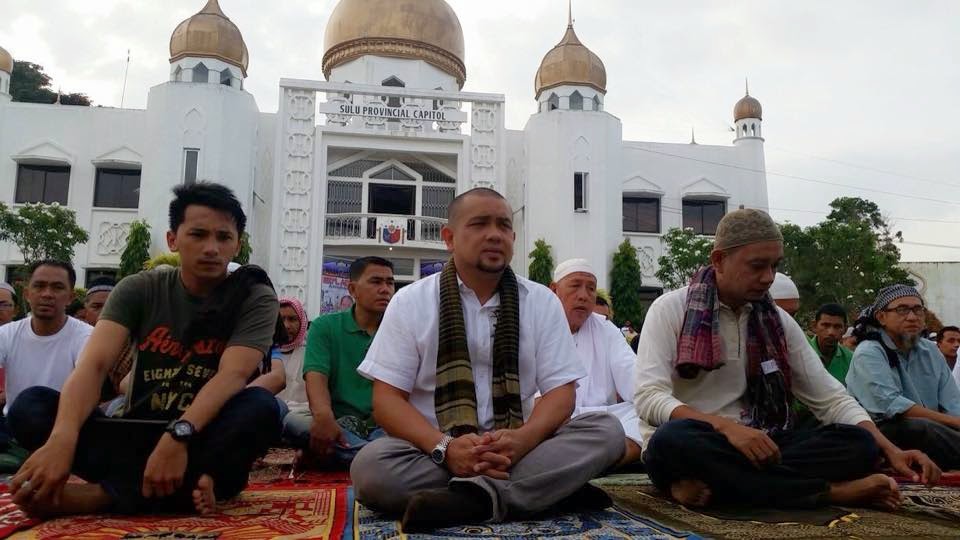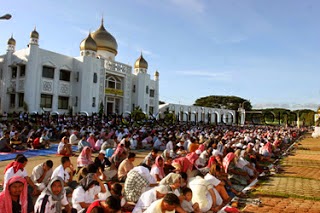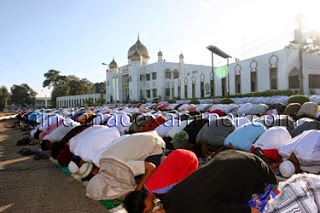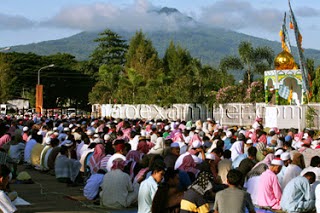
ZAMBOANGA CITY – Muslims in the southern Philippines celebrated Saturday the Eid al-Adha or the Feast of Sacrifice, the second most important festival in the Islamic calendar.
And President Benigno Aquino may have erred when he signed last month Proclamation Number 875 declaring October 6 as a regular holiday in observance of Eid al-Adha.
The Palace said the National Commission on Muslim Filipinos recommended that the observance of Eid al-Adha be on October 6 based on the declaration made by Saudi Arabia’s highest religious body.
Eid al-Adha celebrates the occasion when Allah appeared to Ibrahim in a dream and asked him to sacrifice his son Isma’il as an act of obedience to God. The devil tempted Ibrahim by saying he should disobey Allah and spare his son. As Ibrahim was about to kill his son, Allah stopped him and gave him a lamb to sacrifice instead.
This festival is largely celebrated with prayers in mosque which is followed by sharing of foods among Muslims.
In the Muslim province of Sulu, mosques were full and others, led by their imam, prayed outside, to ask for forgiveness and give thanks to God for blessings they received.
Provincial Engineer Abdurasad Baih said Sulu Governor Totoh Tan led hundreds of residents in the prayers outside the Capitol building. And that Vice Governor Sakur Tan and Mayor Samier Tan led residents of Maimbung town to similar prayers in the mosque.
The Tan’s family also distributed food packs to residents in Sulu, a tradition long held by the philanthropic clan.
“The celebration of Eid al-Adha shows our strong faith to Allah and we give thanks to Him for all the blessings we receive,” he told the regional newspaper Midnanao Examiner by phone from Sulu, one of five provinces under the Autonomous Region in Muslim Mindanao.
In July this year, Aquino also issued Proclamation Number 831 declaring all national holidays to be observed for the year 2015.
A copy of Proclamation No. 831, which was signed by Aquino on July 17 was also released to the press and this listed 18 holidays. The following are regular holidays: New Year’s Day – January 1 (Thursday); Maundy Thursday – April 2; Good Friday – April 3; Araw ng Kagitingan – April 9 (Thursday); Labor Day – May 1 (Friday); Independence Day – June 12 (Friday); National Heroes Day — August 31 (last Monday of August); Bonifacio Day –November 30 (Monday); Christmas Day – December 25 (Friday); and Rizal Day – December 30 (Wednesday)
And the special non-working days are Chinese New Year – February 19 (Thursday); Black Saturday – April 4; Ninoy Aquino Day – August 21 (Friday); and All Saints Day – November 1 (Sunday); January 2 (Friday); December 24 (Thursday); and December 31 (Thursday)
And a special holiday for all schools – EDSA Revolution Anniversary – February 25 (Wednesday).
The proclamations declaring national holidays for the observance of Eid’l Fitr and Eid al-Adha were also issued after the dates have been determined in accordance with the Islamic calendar. (Mindanao Examiner)



